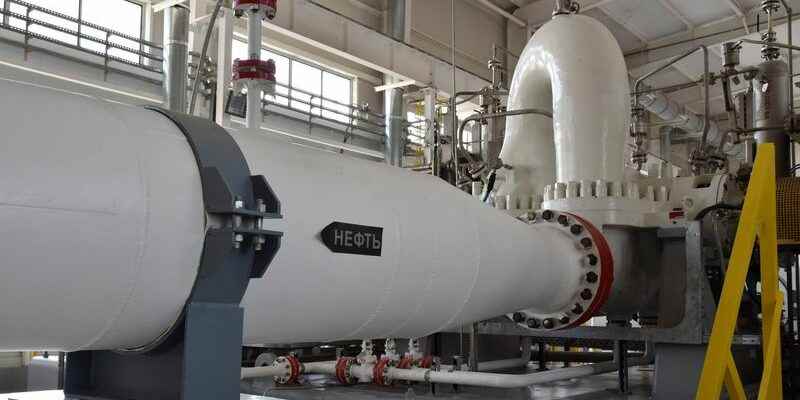LONDON (Reuters) – The Russian group Loukoil will stop exporting its oil extracted from the Caspian deposits from December via the Baku-Tbilisi-Ceyhan (BTC) pipeline and will instead use the Caspian Pipeline Consortium network ( CPC), four sources familiar with the matter told Reuters.
The European Union, which has already adopted several sets of sanctions against Russia because of the invasion of Ukraine, must impose from December 5 an embargo on the purchase and transport of Russian oil.
However, oil exports via the CPC are not affected because this pipeline leading to the Russian port of Novorossiisk, on the Black Sea, is essential for deliveries from Kazakhstan.
“Russian oil is moving out of BTC, the reason being sanctions, BTC is not letting Russian oil in anymore,” one of the sources said.
The other sources, who all requested anonymity, said the move was supported by BTC’s Western shareholders.
Loukoil has so far exported through this pipeline about two million tons a year of oil extracted from its fields in the Caspian Sea, Yuri Kortchagin and Filanovsky.
Exports from Loukoil through the CPC are expected to rise from 364,000 tonnes in November to 660,000 tonnes in December, an initial loading schedule for next month and Reuters calculations show.
Loukoil and CPC refused to comment on the subject. The Azerbaijani company SOCAR, which buys the oil from the Russian group intended for delivery via the BTC, and BP, which leads the consortium operating this pipeline, did not immediately respond to a request for comment.
The CPC routes more than 80% of Kazakhstan’s oil exports. About 10% of the oil transported by this network comes from Russia.
Oil exported via CPC is currently trading at a significant discount to that from Azerbaijan delivered via BTC.
BTC has a capacity of one million barrels per day (bpd), which is not fully utilized as its deliveries this year are expected to be 660,000 bpd.
The main exporters of BTC oil from Azerbaijan are SOCAR and BP, along with Hungarian MOL, American Exxon and the TPAO thing.
(Edited by Reuters, French version Bertrand Boucey, edited by Blandine Hénault)
